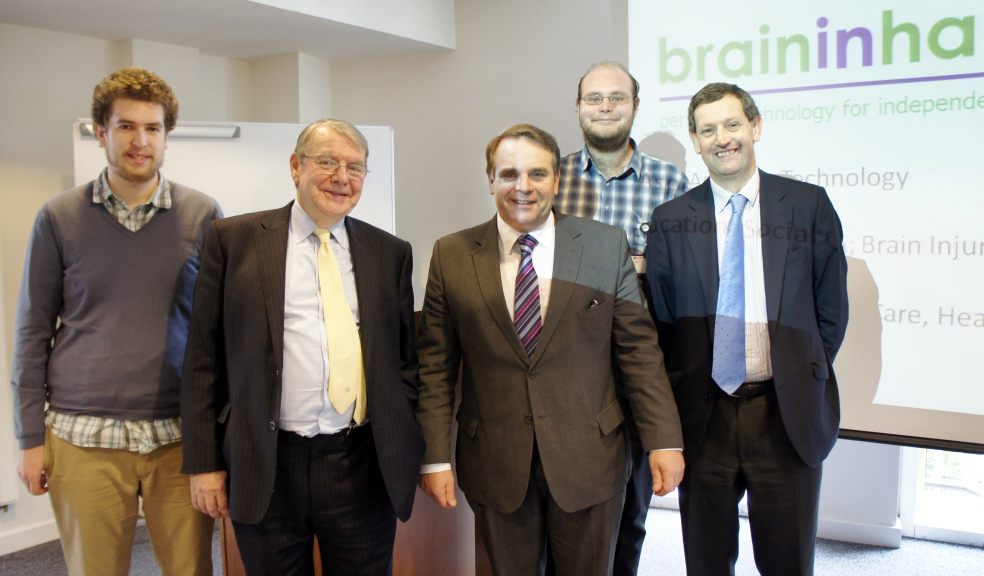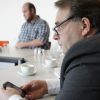
Neil Parish MP impressed with assistive technology for people with Asperger's
Neil Parish, the MP for Tiverton and Honiton, visited the offices of Brain-in-Hand Limited at the Innovation Centre at Exeter University on Friday 11th January 2013, to see first hand the assistive technology the company has developed for people with Asperger’s Syndrome and high-functioning autism.
Neil is a member of the All Party Parliamentary Group on Autism (APPGA) and was very impressed after using the technology himself and discussing its benefits and applications. “I believe this can deliver a greater quality of life for those with Asperger’s, create greater economic benefits and save the taxpayer money,” he said.
As well as a presentation on the SmartPhone based system, which assists people with Asperger’s Syndrome, high-functioning autism, acquired brain injury and a number of other conditions with their day-to-day living, Neil was introduced to Tom Pittwood, who originally participated in the Devon Partnership NHS Trust trial of the system.
Tom liked the service so much that he applied to join the company and works both as a market analyst and in training organisations to use the system effectively. Tom, who is diagnosed with Asperger’s Syndrome and uses the Brain-in-Hand technology himself, said he was delighted to show the MP just how much of a difference it had made to his life.
“I think it is brilliant that a local MP is taking an interest in our company; I hope that we can make a real difference to many people’s lives. My experience in using the technology has been really beneficial,” Tom said.
“It’s the best-applied demonstration of the old metaphor ‘a stitch in time saves nine’. You hit the problem when it happens, rather than discussing it three days later in a therapy session.”
Brain-in-Hand uses a system of activity mapping, where users, in conjunction with a mentor, develop their own bespoke solutions to problems they may face in their daily lives. Data entry using a PC, laptop or tablet is simple and schedules can be copied from one day to another and then adjusted as necessary. This information is automatically loaded on to the SmartPhone.
Users are asked to record their anxiety levels using a simple traffic-light system. Synchronisation between the SmartPhone and the server automatically alerts a support team if a user needs immediate assistance and also provides a record of decisions taken.














